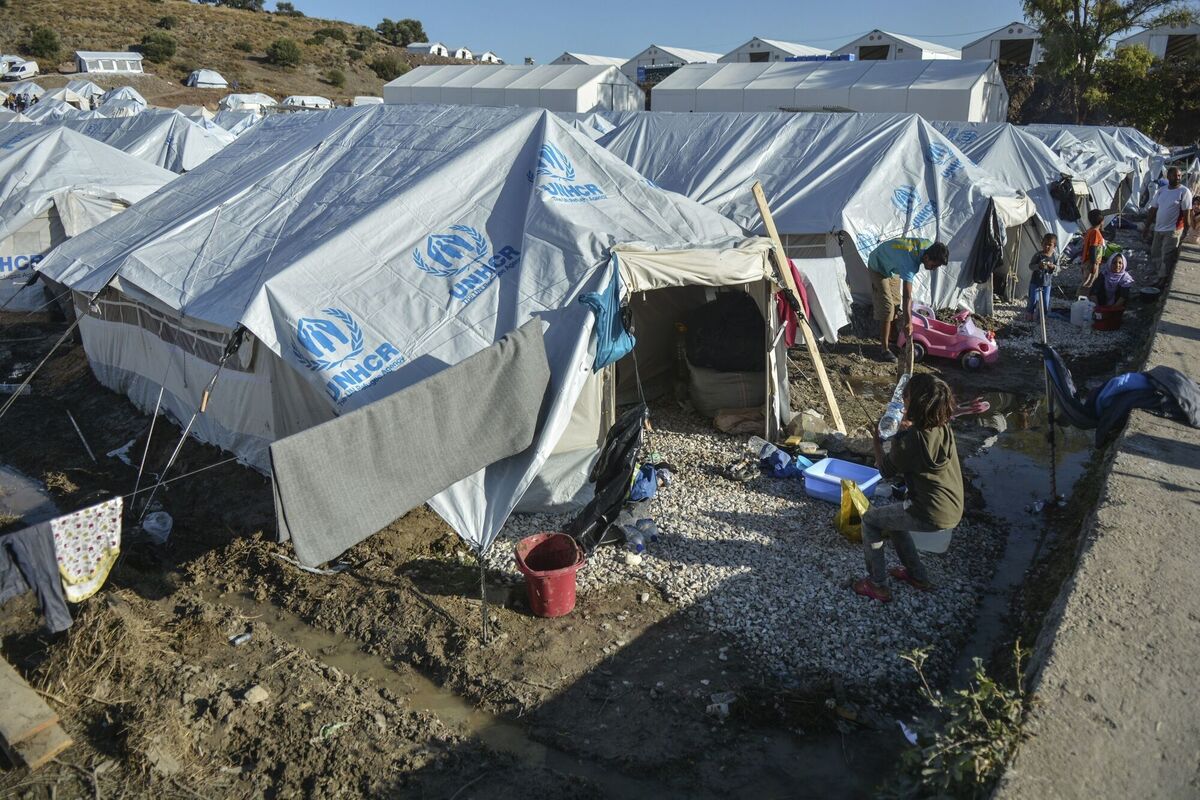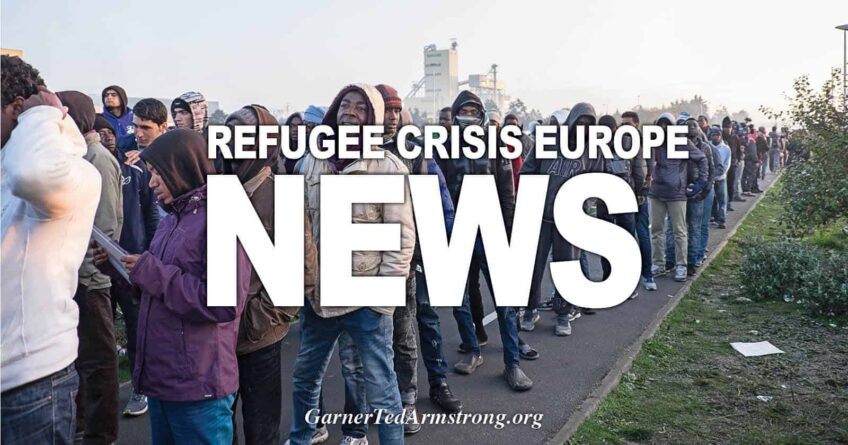
Migrants at the Kara Tepe refugee camp, on the island of Lesbos, Greece. Around 7,600 refugees and migrants have settled at the new tent city after successive fires on September 9 devastated the Moria refugee camp. Picture: Panagiotis Balaskas/AP
Several weeks ago, Moria, Europe’s biggest refugee camp, was burnt to the ground. Less than two weeks later, a new camp was built, and the people found themselves once again in a camp in worse conditions than the ones they had evacuated.
The new Moria currently hosts around 7,500 people in summer tents. There are still no showers and adequate sanitation and hygiene facilities amid a global pandemic.
The camp is exposed to wind and sea weather elements, and winter will bring extreme hardship to those living in these conditions.
Last month, the authorities announced the closure of two smaller camps in Lesvos that provide dignified and humane living conditions for families and vulnerable people, one which is community-driven and run by volunteers and the other by the municipality.
While Europe was so quick to support the rapid construction of the new Moria, it remains silent and does nothing to protect camps like Pikpa that provide dignified and humane living conditions.
Europe needs to recognize that places like Moria will not deter men, women, and children seeking safety and protection in Europe. If we don’t change these policies fast, it will only lead to further avoidable humanitarian catastrophes. These camps need to be shut down immediately, and camps like Pikpa should be protected and replicated.
In the aftermath of the fire and the creation of the new camp, it is important to remember what Moria was for thousands of men, women, and children, and why these camps are a terrible idea.
Aid organizations and rights groups had repeatedly warned that Moria was a ticking time bomb.
The fire was the result of years of neglect by European policies that kept people in dangerously overcrowded, unsafe, and unsanitary conditions.
Before the fires, tensions were extremely high, and security had deteriorated. The camp had been in lockdown for over five months with entry and exit severely restricted.
People were crammed into overcrowded containers, flimsy tents, and makeshift shelters with limited access to water, food, sanitation, and healthcare — all in the context of COVID-19. The fact that there were no casualties is nothing short of a miracle.
In 2016, Europe, to stem the flow of migration, signed a deal with Turkey that trapped thousands of refugees and asylum seekers on the Greek islands. This meant that the people languished in limbo for months and years, going through lengthy and unfair asylum procedures, the vast majority of them without any legal aid, support, or information.
Moria, built to accommodate a little over 3,000 people, had for the past five years operated way beyond its limits. In March of this year, it housed 20,000 people — more than six times the capacity.
When the fire broke out, 13,000 people evacuated and were left to sleep on the street without shelter, food, and water.
Among those living in Moria were people with severe physical and mental health conditions, victims of violence and torture, the elderly, new-born babies, pregnant women — many carrying the trauma from the countries they fled and the dangerous journeys they undertook.

Migrants at their tents after a rainstorm at the Kara Tepe refugee camp, on the northeastern Aegean island of Lesbos, Greece. Picture: Panagiotis Balaskas/AP
In Moria, many children without parents were living alone and unprotected. At the time of the fire, around 4,000 of the residents were children. They should have been in school and living in a safe environment.
In 2018, according to MSF (Médecins Sans Frontières), almost a quarter of the children attending their mental health programmes in Moria had self-harmed, thought about, or attempted suicide.
I imagined my own mother, grandmother, and kids living in these conditions, their physical and mental health deteriorating, the uncertainty, the fear, and the seemingly never-ending asylum procedures. What I struggled the most with was coming to terms with how, in Europe in 2020, such places even exist.
It is impossible to trap thousands of people in inhumane conditions, deny them of their basic needs, and expect that there will be no problems.
What is happening in refugee camps on the Greek islands should be of great concern to all of us.
It is a shameful indictment of Europe, our governments, and our society as a whole. We are failing these people. It is a collective moral failure of the EU.
Everybody who arrives in Lesbos or any of the other Greek islands risked their lives to get there because there is no safe and legal way.
After the fire in Moria, the Irish government’s initial response was to relocate four unaccompanied minors.
The failure of EU countries to take responsibility has left the entire burden on the shoulders of small island communities, locals, volunteers, and aid workers, who for years, in the absence of any real help and solidarity, have been left alone to support people living in desperate circumstances.
It is time the Irish Government, and all EU member states, step up and take responsibility for years of neglect against men, women, and children who continue to be punished for seeking protection and safety in Europe. It is not a huge demand.
All we are asking for is that people have access to dignified and humane living conditions, fair asylum procedures and that EU member states share that responsibility equally.
Source: https://www.irishexaminer.com/news/arid-40072922.html
[Disclaimer]






